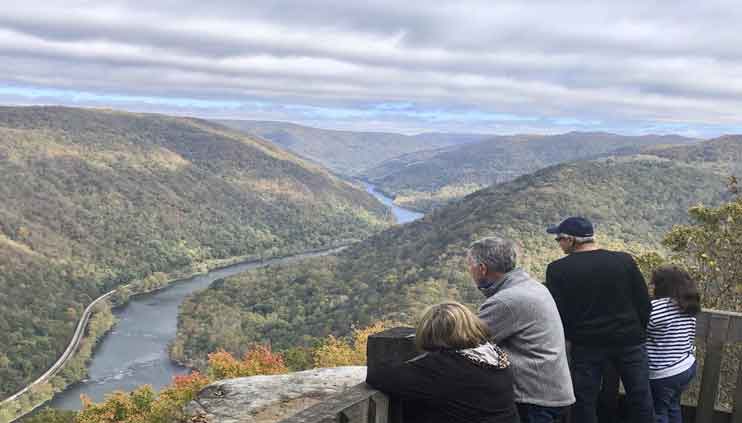From grime to crumbling masonry, US parks get a makeover

Entertainment
From grime to crumbling masonry, US parks get a makeover
(AP) - Near the Tidal Basin in Washington, crews have cleaned grime off the white marble exterior of the Jefferson Memorial and fixed cracked stone to prevent falling debris. At the Statue of Liberty, plans are in the works to waterproof the exterior of the massive stone fort built in 1807 that serves as the monument’s base.
And at New River Gorge in West Virginia, one of the newest national parks, historical masonry grills have been restored near the Grandview Visitor Center, which features a breathtaking overlook of the valley and waterway 1,400 feet (430 meters) below.
Under legislation passed by Congress in 2020, some of America’s most spectacular natural settings and historical icons, from the monuments of the East Coast to the Grand Canyon and Yosemite in the West, are getting a makeover.
The Great American Outdoor Act dedicates up to $1.6 billion a year for the next five years to extensive maintenance and repairs that have been put off time and time again. The funding will go toward critical projects in national parks, forests, wildlife refuges and recreation areas, according to the Department of the Interior. It also includes funding for tribal schools.
Some of the first projects being funded are smaller ones that will preserve historical structures like the grills at New River Gorge and the marble walls of the Jefferson Memorial. But dozens of other projects are coming, some more urgent than others.
In Puerto Rico, plans call for stabilizing a cliffside eroded by wind, rain and waves at San Juan National Historic Site to stop rocks from falling on a popular recreation trail below.
Another project will repair the failing left abutment of a 146-year-old masonry dam on the Potomac River at the Chesapeake and Ohio Canal National Historical Park “to prevent possible loss of life” from a sudden release of water.
At the Grand Canyon, a massive Swiss chalet-style building with oversized balconies, windows and eaves is in line for an upgrade that will bring the now-vacant structure up to code and stabilize it while the park determines how best to use it.
Some of the projects planned for the next year will fix problems with infrastructure that park visitors might not immediately notice: repaving roads, repairing leaky lodge roofs and replacing outdated utilities that pose safety risks.
One such project will replace dilapidated high-voltage transmission lines and towers at Yosemite National Park. The lines constructed in the mid-1930s provide power to the entire Yosemite Valley.
Several campgrounds will see improvements, including one in the Rocky Mountains that will get new utility lines to provide consistent clean water and power as well more electric hookups and parking.
“The Great American Outdoors Act overall, with the amount of funding available, offers us really a once in a generation opportunity to take care of some of the large projects, the large needs, of the national park service,” while also addressing several critical smaller projects, said Mike Caldwell, National Park Service acting associate director of park planning, facilities and lands.

